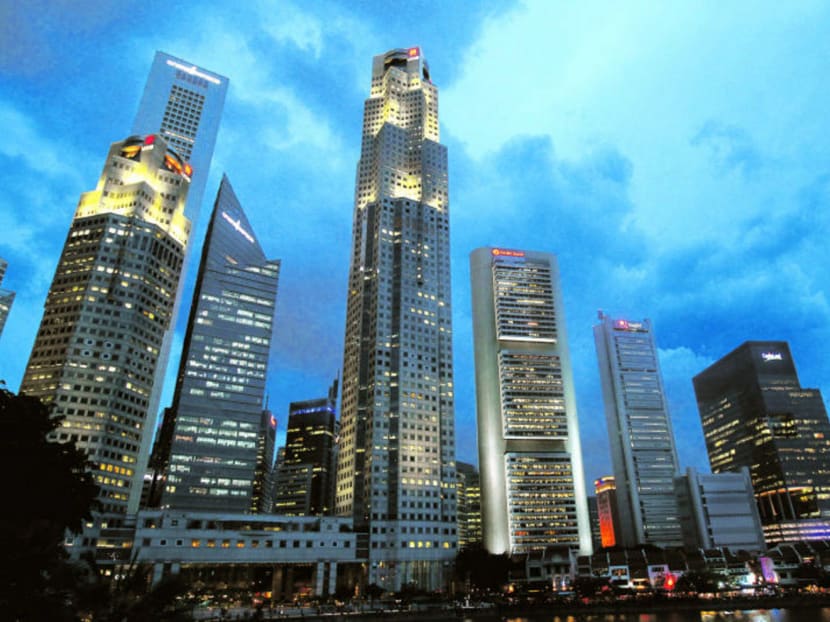Consumer prices up for 5th straight month, but pace slows
SINGAPORE — Consumer prices rose for the fifth consecutive month in April, but the pace slowed from the previous month due to a larger fall in accommodation cost that helped offset the rise in electricity and gas prices.

Singapore Central Business District (CBD). TODAY file photo
SINGAPORE — Consumer prices rose for the fifth consecutive month in April, but the pace slowed from the previous month due to a larger fall in accommodation cost that helped offset the rise in electricity and gas prices.
The increase in the All-Items Consumer Price Index (CPI) eased to 0.4 per cent year-on-year last month from 0.7 per cent in March, said the Monetary Authority of Singapore (MAS) and Ministry of Trade and Industry (MTI) in a joint statement yesterday. Economists in a Reuters poll had expected headline CPI to rise 0.7 per cent from a year ago.
“The reason for the moderation in inflation was due to a larger 6.7 per cent year-on-year decline in accommodation cost, compared to the 4 per cent year-on-year drop back in March. We note that the larger decline in accommodation cost was due to the disbursement of service & conservancy charges (S&CC) rebates to households in April that reduced the cost of housing maintenance and repairs,” said UOB economist Francis Tan. Last year, the S&CC rebates were disbursed in May.
While the S&CC rebates helped to moderate inflationary pressures, the sharp jump in electricity and gas prices hurt households. Maybank Kim Eng Research economists Chua Hak Bin and Lee Ju Yee noted that electricity and gas prices surged by 18.7 per cent from a year ago as global oil prices continued to recover. “In particular, electricity tariffs, which make up 2.2 per cent of CPI weights, recorded the fastest pace of growth in April since Sept 2010,” they said.
While headline inflation slowed, MAS core inflation — which excludes the costs of accommodation and private road transport — accelerated at a 1.7 per cent pace, largely reflecting the jump in the costs of electricity and gas. In March, core CPI rose 1.2 per cent year-on-year.
In their statement yesterday, the MAS and MTI noted that “administrative price adjustments” will contribute to a temporary increase in inflation this year. These include the upward revision in car park charges and household refuse collection fees which took effect from last December and this January, respectively, as well as upcoming increases in water prices and S&CC.
As inflationary pressures intensify, as reflected in the rising core inflation, Mr Chua and Ms Lee expect the MAS to tighten its policy in its October meeting.
“We think the risk is thus tilted towards MAS shifting to a slight appreciation bias in October, given the upside risks to inflation and growth,” they said. Mr Tan, however, expects the MAS to stand pat, after the central bank reiterated in April the neutral Singapore dollar nominal effective exchange rate policy stance “is appropriate for an extended period and should ensure medium-term price stability.”
“The central bank is not expecting runaway prices, and although current economic conditions are better than just a year ago, the weakness in the labour market will set a limit on cost-pushed inflation,” he said.
Last month, private road transport inflation inched up to 7 per cent from 6.9 per cent the previous month, owing to the faster pace of increase in car and petrol prices. Services inflation edged up to 1.7 per cent in April from 1.6 per cent in March, while food inflation stayed the same at 1.3 per cent.





